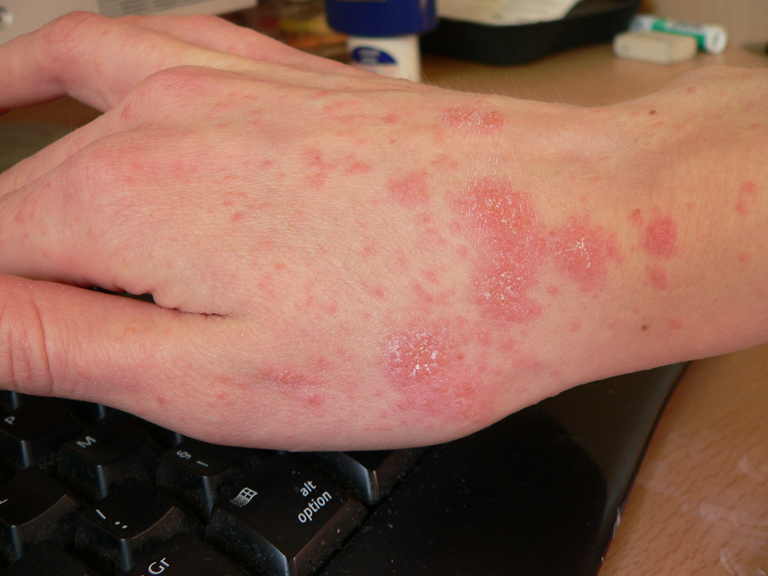Scabies cases in London are increasing at a sharper rate than in other UK regions, new data from the Royal College of General Practitioners (RCGP) has revealed.
Records of the skin condition in the capital are two thirds higher than they usually are at this time of the year and the recent spike in London follows numerous reports that scabies cases have risen across the UK as a whole.
A London-based doctor told South West Londoner the rise in cases have raised concerns within both communities and healthcare providers.
They said: “While scabies can affect anyone, it is particularly common in crowded living conditions, such as shelters, dormitories, and long-term care facilities.
“Regular bathing, laundering clothing and bedding in hot water, and avoiding sharing personal items can reduce transmission risks.”
NHS figures show 3,689 scabies cases were confirmed in English hospitals in the year to April which is up 2,128 the previous year in 2023.
The highly contagious condition is caused by the Sarcoptes Scabiei mite, which burrows into skin and lays eggs.
This can cause severe itching and an incessant bumpy rash often found in skin folds such as the underarms, waistline or between the fingers.
It can be spread not only through close physical contact, but also by sharing bedding, clothes and towels.
According to the World Health Organisation, the eggs hatch in three to four days and become adult mites within two weeks.
Symptoms, however, often do not appear until after six weeks of infection, meaning early diagnosis is crucial to avoid the spread.
The doctor said the sudden rise in cases is most likely caused by over-crowding due to increased socioeconomic challenges, delayed diagnoses, as well as seasonal factors where outbreaks often peak during festival season.
They added: “The recent scabies outbreak serves as a reminder of vigilance in public health.”
“By understanding the causes, symptoms, and preventative measures, communities can work together to mitigate the spread of scabies and protect vulnerable populations.”
South West Londoner also spoke to a sufferer of scabies, who wished to remain anonymous.
They said: “Scabies has spread throughout my family and different members have suffered to varying extents.
“I have only had mild symptoms, but others have experienced relentless sleepless nights from the itching.”
The sufferer added they were particularly concerned about spreading it to their partner and friends due to the social stigma which surrounds the condition.
They said: “Each time we have tried to treat and eradicate scabies, we have had to wash every item of laundry again, and again.
“I work a full-time job and this whole condition has been extremely draining for me, both physically and mentally.”
The most common treatments for scabies are permethrin cream or malathion lotion – both of which can be bought over the counter in pharmacies or by prescription.
Awareness campaigns are helpful as they encourage individuals recognise the condition and seek treatment properly and quickly.
Chair of the RCGP Professor Kamilla Hawthorne said: “We recognise that patients may be apprehensive to seek treatment given the social stigma that surrounds the condition, but it is important that they don’t ignore their symptoms.
“This could lead to them getting worse and risks transmitting the condition to other people – particularly if they are living in close proximity to others such as on a university campus.
“We are aware that the symptoms can affect a patient’s quality of life so we will try our best to ensure an individual receives prompt and effective treatment.”
Featured image courtesy of Wikimedia Commons





